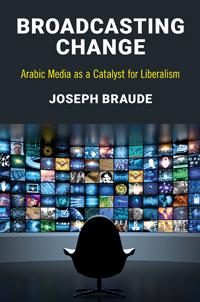Here’s a roundup of new and noteworthy articles and interviews about political developments in the Middle East.
TV Debate on Qatar’s restoration of full diplomatic ties with Iran
On August 29, TRT World, a TV channel controlled by the Turkish government, hosted a debate about Doha’s decision to return its ambassador to Tehran. Mahjub Zuwayri, a professor at Qatar University, with a PhD from Tehran University, explained the decision as follows: “It’s the right of a sovereign nation to decide on its own foreign policy. … Iran showed a willingness to help Qatar on the blockade imposed upon it by its own neighbors.” Hisham al-Ghannam, a fellow at Saudi Arabia’s King Faisal Center for Research and Islamic Studies, replied, “Qatar is not Cuba during the Bay of Pigs invasion. Qatar is under the U.S. security umbrella. This is a tactical move rather than a strategic one. The goal is to send a message to the boycotting countries that Qatar is … aligning with Iran. … I want to ask your distinguished guest from Doha, “Will the Qatari money that will be funneled to Iran be used to support the Shi’ite death squads in Iraq and Syria?”
Strategic normalization of ties between Saudi Arabia and Iraqi Shi’ites
A recent Soufan Center Intelbrief reports: “Saudi Arabia has taken some steps to improve relations with its Shi’a-majority neighbor of Iraq. In late July, Crown Prince Salman hosted the Iraqi cleric Muqtada al-Sadr, a rather unexpected move. Al-Sadr has become more of an Iraqi nationalist over the last several years, and Riyadh will likely want to take the opportunity to encourage a sense of Arab Shi’ism, as opposed to an Iranian-influenced one. Al-Sadr’s was not the only high-level visit between the two countries; Iraqi Prime Minister Abadi visited Riyadh and the Saudi Foreign Minister visited Baghdad. The Arar border crossing between the two countries, which had been closed since the 1990 Iraqi invasion of Kuwait, is being re-opened, a significant sign of progress in terms of trade, as well as diplomacy.”
An insider’s report on deliberate distortions of Mideast coverage by Russia’s Sputnik News
American journalist Andrew Feinberg, recently fired by the Russian government-operated Sputnik News, has published an expose about the experience in Politico. He writes of his boss at the network, Peter Martinichev, “Every morning I’d submit my questions via email, and his reply would almost always dismiss them in favor of his own replacement questions on other topics, with no regard to whether they were based on reality or not.” Among other examples, he describes how Martinichev pressured him to promulgate bogus claims that gas attacks in Syria were perpetrated by Syrian rebels, not the Assad regime.

Speak Your Mind